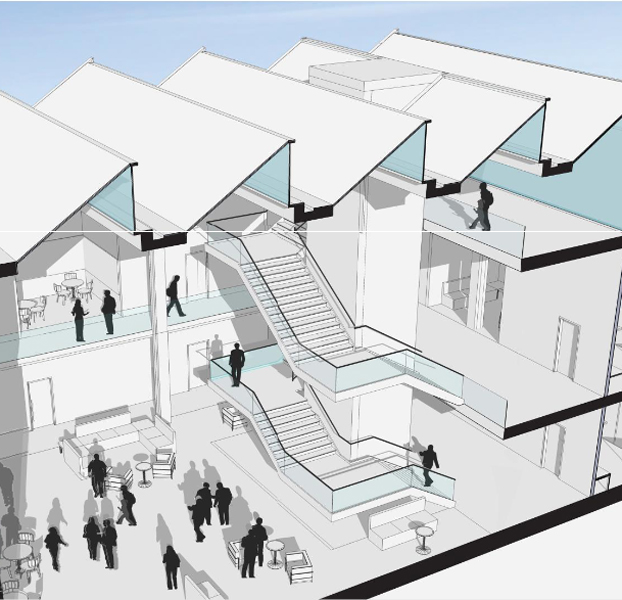Drexel University is opening a new research institute that
will strive to answer some of the most challenging questions about energy and
environmental sustainability facing the nation today. The A.J. Drexel Institute
for Energy and the Environment will look at the science, economics and politics
that influence decisions about energy and the environment; and serve as a
resource for decision makers both in the region and around the world.
The institute will bring together researchers from Drexel’s
College of Engineering; School of Biomedical Engineering, Science and Health
Systems; LeBow School of Business; Antoinette Westphal College of Media Arts
& Design; College of Arts and Sciences; the School of Public Health, the
Academy of Natural Sciences; the College of Nursing and Health Professions and
the College of Computing & Informatics. The academic core of the institute
will be organized into six interdependent research thrusts that focus on
various scientific, technological and geopolitical aspects of energy and the
environment.
“America is at a crossroads in terms of energy strategy, and
Drexel’s research strengths are ideally suited to analyzing the costs, benefits
and tradeoffs created by emergent and conventional energy sources,” said John
A. Fry, Drexel’s president. “Drexel has made a broad commitment to use our
intellectual capital to help meet the challenges facing society, and it’s in
that spirit that we launch the Institute for Energy and the Environment.”
These six designated research thrusts are: Energy,
Environment & Society; Energy Scenarios; Energy-Effective Design; Energy
Storage Technologies; Energy Systems, Analytics and Control; and Energy
Sources.
Energy, Environment & Society research teams are
exploring issues such as the role of state and federal laws, policy and
regulations in the development of new and existing energy resources. Energy
Scenarios faculty and students are conducting holistic evaluations of different
energy scenarios. Energy-Effective Design researchers are developing tools,
technologies and processes to reduce energy consumption in the built
environment while promoting human health and wellbeing.
Energy Storage Technologies researchers are working to solve
the problems of how to efficiently store and discharge energy from conventional
and renewable sources by developing new materials, devices and systems. Energy
Systems, Analytics and Control researchers are working to create the Smart Grid
of the future, incorporating advanced computing technologies into every aspect
of power generation, delivery and consumption to improve quality of service and
reduce environmental impact. And Energy Sources researchers are exploring
multiple large-scale energy production technologies including solar, wind,
nuclear, natural gas and biofuels to diversify and advance the nation’s energy
supply.
The institute will be headed by a director, for whom the
University is currently conducting a national search. Research will also be
guided by the expert advice of the IExE Alliance – members of corporations,
not-for-profits, NGOs, and concerned citizens, who have access to the
Institute’s intellectual and physical resources- and the Scientific Advisory
Board, which includes researchers and scholars with expertise in areas that
advance the goals of the Institute.
“There’s a tremendous amount of complementary research going
on at Drexel across fields relevant to energy and the environment,” said Joseph
Hughes, PhD, dean of Drexel’s College of Engineering and founding director of
the Institute. “By giving those researchers a platform to connect with external
decision makers, we can help advance the critical conversations happening
around energy policy.”
While research will begin immediately, plans for faculty to
be assembled under one roof are already in place. A building at 3101 Market
Street is being remodeled to house the Institute’s faculty, research facilities
and private sector partners.
Source: Drexel.edu

No comments:
Post a Comment